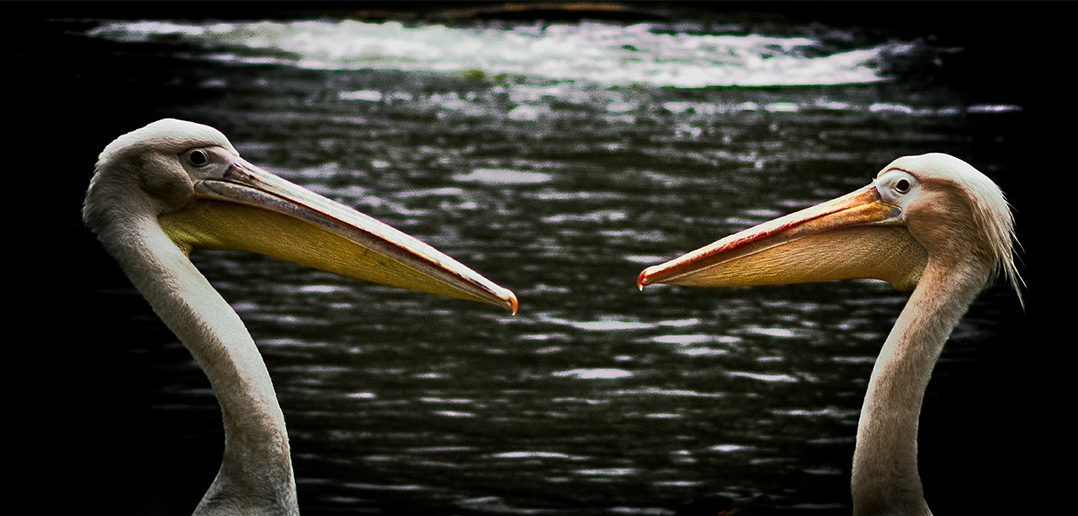
Darwinism can be used to back up two mad moralities, but it cannot be used to back up a single sane one. The kinship and competition of all living creatures can be used as a reason for being insanely cruel or insanely sentimental; but not for a healthy love of animals. On the evolutionary basis you may be inhumane, or you may be absurdly humane; but you cannot be human.
G.K. Chesterton, Orthodoxy
Beginning with Rousseau, the world has never suffered a lack of modern people who argue that the human race would be far happier if all of us were allowed simply to indulge our natural inclinations, in imitation of our ancestors and relatives, the animals of field and forest. The theory might sound plausible, and not a few have tried to put it into practice—to the extent consistent with civil laws and social conventions. But we may want to ask (as human beings distinctively do ask) whether this opinion is tenable according to what a man can hear from within, when he examines himself as he really is.
Emulation of animal libido is a reason for being promiscuous and heated, but not for establishing and maintaining harmonious love with another person. Arguments drawn from instinct and applied to human sexual desire — concluding that the once-condemned vice of lust is nothing but a primitive taboo later turned into a hypocritical instrument for wielding power — stand on the tenuous premise that man is not meant to lead any better or qualitatively different sort of life, that is to say, a rational life of virtue within a community of friends. The “freedom” manifested by the brute is no more than a lack of predetermined action towards any instance of a specific good, but the animal can in no way choose, color, or temper its involuntary appetite for that object of attraction once it falls within its sphere. Its appetites are commanded or harnessed by no loftier end. During mating season the animal can, stretching the word, “choose” to couple with this or that particular mate, according to immediate sense-impressions, proximity, circumstance, etc.; but it cannot choose to mate, simply speaking, for nature compels it towards a distinct and unalterable end.
The supposedly free life of the animals, therefore, is obviously and dramatically the contrary. They obey an internal impulse that fixes onto whatever object the season of the year and the operation of their senses have brought before them. The animal is not only irrational, but supremely unfree, because it lacks that power to choose which is traditionally called free will.
Our ability as a race to recognize and name a host of moral vices—among them, lewdness, lechery, lust, intemperance, immodesty, gluttony—is based on the experienced truth that man is not merely a creature of instinct, provoked irresistibly by external objects over which he has no interior control, but a creature of knowledge and freedom, who can ask himself “Why am I acting? Should I do this or that action? What is the best way for me to act here and now, if I am to be happy? What are the most suitable means I can choose for attaining this end?”
For man to imitate his animal kin, he must pull out the crowbar and, with considerable effort, cram his will and intellect into a little box marked “superstition” or “guilty feelings,” after which he must proceed to act solely and whenever possible upon the spontaneous movements of his aroused passions. But not even the animals behave this way. Nature restrains them by appointing seasons and limits to their eating and reproducing. She has not so restrained man, who is capable of discerning for himself the virtuous mean and setting times and boundaries according to its demands. In any case, we could not act altogether like animals even if we wanted to, since, owing to our very nature, we have more going on in our souls than sensations and passions, however temporarily overwhelming these may be.
The perfectly instinctual man, the one who managed to ape his evolutionary relatives, would be a monster of insatiable appetites, as willful as a bratty child and as heartless as a criminal. The often specious and always sophistical arguments one hears in favor of birth control, abortion, autoeroticism, and homosexuality invariably mask what is, in the final analysis, a blanket approval of indulging animal instincts according to the individual’s self-constructed system of values. These values may include the supremacy of pleasure, convenience, or whim, over responsibility, duty, and the health of human nature; they tend to operate regardless of mental happiness, moral strength, and the common good of family and society. In so many cases, we are confronted with an elaborate rationalization for living the slavish life of one who has nothing more or better to live for.
Once again, Chesterton in Orthodoxy does a marvelous job capturing the nub of the issue:
Only the supernatural has taken a sane view of Nature. The essence of all pantheism, evolutionism, and modern cosmic religion is really in this proposition: that Nature is our mother. Unfortunately, if you regard Nature as a mother, you discover that she is a step-mother. The main point of Christianity was this: that Nature is not our mother: Nature is our sister. We can be proud of her beauty, since we have the same father; but she has no authority over us; we have to admire, but not to imitate.


